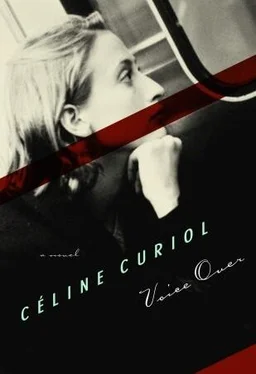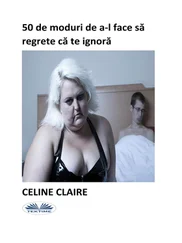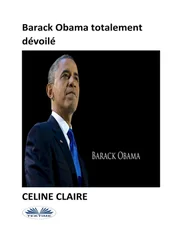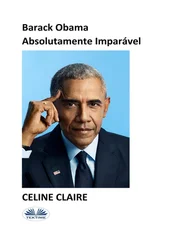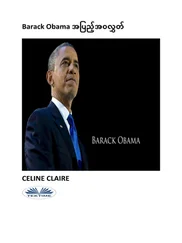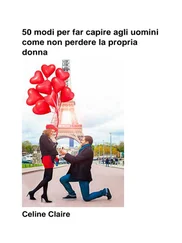Celine Curiol - Voice Over
Здесь есть возможность читать онлайн «Celine Curiol - Voice Over» весь текст электронной книги совершенно бесплатно (целиком полную версию без сокращений). В некоторых случаях можно слушать аудио, скачать через торрент в формате fb2 и присутствует краткое содержание. Год выпуска: 2008, Издательство: Seven Stories Press, Жанр: Современная проза, на английском языке. Описание произведения, (предисловие) а так же отзывы посетителей доступны на портале библиотеки ЛибКат.
- Название:Voice Over
- Автор:
- Издательство:Seven Stories Press
- Жанр:
- Год:2008
- ISBN:нет данных
- Рейтинг книги:5 / 5. Голосов: 1
-
Избранное:Добавить в избранное
- Отзывы:
-
Ваша оценка:
- 100
- 1
- 2
- 3
- 4
- 5
Voice Over: краткое содержание, описание и аннотация
Предлагаем к чтению аннотацию, описание, краткое содержание или предисловие (зависит от того, что написал сам автор книги «Voice Over»). Если вы не нашли необходимую информацию о книге — напишите в комментариях, мы постараемся отыскать её.
Voice Over — читать онлайн бесплатно полную книгу (весь текст) целиком
Ниже представлен текст книги, разбитый по страницам. Система сохранения места последней прочитанной страницы, позволяет с удобством читать онлайн бесплатно книгу «Voice Over», без необходимости каждый раз заново искать на чём Вы остановились. Поставьте закладку, и сможете в любой момент перейти на страницу, на которой закончили чтение.
Интервал:
Закладка:
After walking out of the station, she stops in at a café. She wants to celebrate their reunion. The waiter is surly, but in her current state she could put up with insults and still be smiling. Hot chocolate, its sweet taste, comfort, a childhood treat. To prolong the pleasure, she drinks it with a small spoon. Everything has yet to start; all is held in suspense. Full of promise. In bud. The horizon is clear, the best can be imagined. He has just offered her the place she has been trying to occupy for a long time, by her own crude and ineffectual means, without ever daring to demand it. She knows that everything will be more complicated later. But for now, what happens next is nothing compared to the present, which overwhelms all else, encompassing both past and future. A happy anticipation of what she now has no more reason to fear. Behind the window, pedestrians are walking by in waves. She passes the time following several of them with her eyes, testing the force of her gaze. The challenge: to pierce through the layers of thoughts and preoccupations that cut them off from the world around them. The rules: to use only your eyes. The purpose of the experiment: to determine the time it takes for them to turn their heads in her direction. The findings: first of all, there are those who are impossible to reach, who forge ahead without noticing anything. Wasted effort, they’re the sort who will never respond. Then there are those who react at once and yet seem to be the most absent. Their heads jerk round suddenly, as if their skulls were attached to a wire on which she’d given a sharp tug. They gaze straight at her, forcing her to withdraw into herself as if she’d been bitten. Lastly, there are the ones she has to make an effort with and who make her feel as if she’s fishing. At the last minute, just as they’re about to disappear from sight, they turn their heads, slowly, as though thinking someone had called their name. They don’t always see her, but they look in the right direction. They are her favorites because they belong to the same category she does. Now that she had finished warming up, she turns her attention to the people inside the café. Easier because no one is moving, more risky because she is in the same room. Around her, the tables are empty. The customers are crowded up at the bar, cigarette in mouth, glass in hand, words on lips. The waiter, resting one elbow on the zinc counter, is searching for wondrous worlds in the cracks of the ceiling. She starts with the hunched backs. No luck. A woman did move her head, even almost saw her, but midway let herself get distracted by something out in the street. And then, all of a sudden, a bite. She had barely begun to stare at him when the man spotted her.
He climbs laboriously down from his high stool and walks towards her. She feels embarrassed, hasn’t the least idea what his intentions are. She stirs what remains of the cold chocolate at the bottom of her cup. He looks like a tramp, bushy beard, dishevelled oily grey hair, multiple layers of clothing, and yet is carrying Chanel, Longchamp and Armani shopping bags, lots of them. She signals to the waiter, who has just discovered a cache of hidden treasure under his thumbnail. The legs of the chair in front of her scrape over the tiled floor. May I, asks a deep voice. Without waiting for a reply, the man sits down and arranges his fancy stuff on a second chair. I did some shopping, they’re having sales this week. The man studies her face. He doesn’t strike her as aggressive; he awakens her curiosity, and so she lets him talk. I’m not what you think. Odd introduction. Neither is she what he thinks, but in her case it is far less obvious. He explains to her that he is not what he seems. You know, a tramp, a homeless person. But he prefers people to assume that he is; it helps him with his investigations. As he talks he holds her gaze; his eyes serious to dispel her doubts. The object of his investigations? Human nature; he’s been studying it for several years. Compiling data about people’s behavior in the face of poverty. His appearance suggests one thing, his bags another; his words attempt to make it all coherent. She can’t decide whether he is lying or telling the truth. A bit of both. He is lying, but thinks he is telling the truth; or else telling the truth to justify his deception. You don’t come here often, I’ve never seen you before. True, but for once she felt like dropping by after work. She is not about to start telling him her life story; after all, she has to remain on her guard, she promised herself. He’s found a lovely little scarf, pure wool; he’ll show it to her. He thrusts his hands into the Armani bag and brings out a hirsute piece of cloth, which he displays proudly without unfolding it. Not bad, eh? I haven’t tried it on, but the color should be fine. Tell him that he’s off his rocker. . She prefers to answer that yes, the color goes well with his skin tone. Visibly the man wasn’t expecting that; he seems pleased. She wouldn’t work at the station by any chance? Surprise. Yes, she works at the station; as she says the words she blushes, without knowing why, as if she had been caught doing something red-handed. She wonders how he could have guessed that she. . Her voice? That would be a first. No one has ever recognized her like that before. A person would need to have spent a hell of a long time listening to announcements over the loudspeakers to be able to make the connection. But if he spends the night asleep in some corner of the station, then perhaps it is her voice that wakes him every morning. And she thought she was talking into thin air. There might be someone without a train to catch who listens to her reciting times and destinations. She doesn’t dare ask him if he lives in the station; that would cast doubt on the truthfulness of what he has said. He has started talking again. Do you like theater? She doesn’t know; it depends. The timing of the question couldn’t be better. Funny you should ask. That’s where I’m going tonight, though usually. . He smiles as if to reassure her. She’ll like it, he’s sure she will. However much she tries to tell herself he is raving, the impression persists that he already knows her. He is following her every reaction. She succumbs to the fascination of small details: the strip of red skin fringing his lower eyelids; the way the hairs of his beard poke through his skin; the sudden, slight dilations of his nostrils as though, from time to time, they had to make way for more voluminous particles of air. It’s better to go to the theater alone. He says it while continuing to stare at her. No way can the man know. He could just as easily have remarked that it’s better to carry an umbrella when it rains. But no, he had to mention the theater, precisely on the day when. He found her sitting in a café on her own; he drew his conclusions from that. The wonders of logic, psychological decryption, a gift for observation. Absolute knowledge allows the future to be foretold. You don’t agree it’s better to go alone. Oh it is. It is.
Whatever the extent of the oddball’s divinatory powers, she is no longer in the mood for guessing games. A small gesture to the waiter, who is now studying them closely, not missing a crumb of their weird tête-à-tête, a perfect distraction for a rather dull late afternoon. She pays, gets up. The man’s voice for the last time. You’re right to go alone, trust me. She shrugs her shoulders but is happy to hear those words. No one has ever proved that guardian angels don’t exist. Not angels who have wings, like the ones she saw the other night on Ange’s back, but angels who protect you, the real guardians.
The rooflines of the apartment buildings appear perfectly distinct, their symmetrical placement down the length of the avenue far more striking than usual. The declining light bathes the façades in its orange hues. She has passed this way dozens of times, but this evening the sight of these stationary buildings does her good. Lit as they are, the walls are no longer barriers but mirrors, filtering moods so that only the best ones remain. One day she was given a pair of tinted orange sunglasses. They made the world more beautiful. She wore them at every opportunity, dreading the moment when she would have to take them off. After several delicious weeks, she lost them. Where or how, she had no idea. She has had other pairs since then, of course, but has never found the desired effect again. Which has led her to conclude that for every pair of eyes there exists a specific tint. Color is absorption, what remains of light deprived of certain wavelengths. Orange equals light minus blue, simple arithmetic. All the colors mixed together gives white. Maximum superposition, absolute density. What she needs is to filter out a certain blue wavelength which makes the world a little too cold for her. Yet she also knows that losing those glasses was not a bad thing. If they had stayed with her, she would have grown accustomed to them. Repetition would have diminished the effect.
Читать дальшеИнтервал:
Закладка:
Похожие книги на «Voice Over»
Представляем Вашему вниманию похожие книги на «Voice Over» списком для выбора. Мы отобрали схожую по названию и смыслу литературу в надежде предоставить читателям больше вариантов отыскать новые, интересные, ещё непрочитанные произведения.
Обсуждение, отзывы о книге «Voice Over» и просто собственные мнения читателей. Оставьте ваши комментарии, напишите, что Вы думаете о произведении, его смысле или главных героях. Укажите что конкретно понравилось, а что нет, и почему Вы так считаете.
